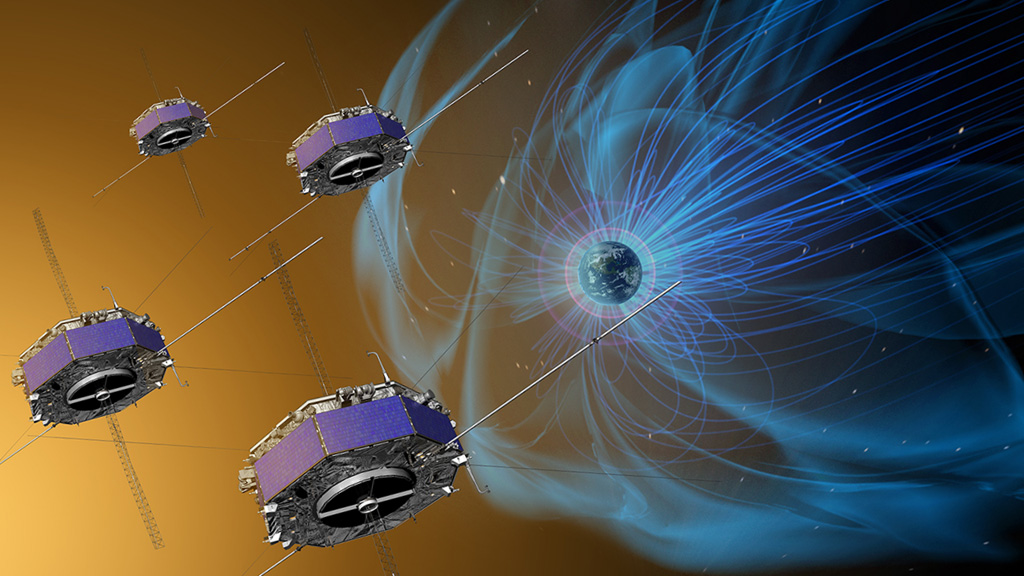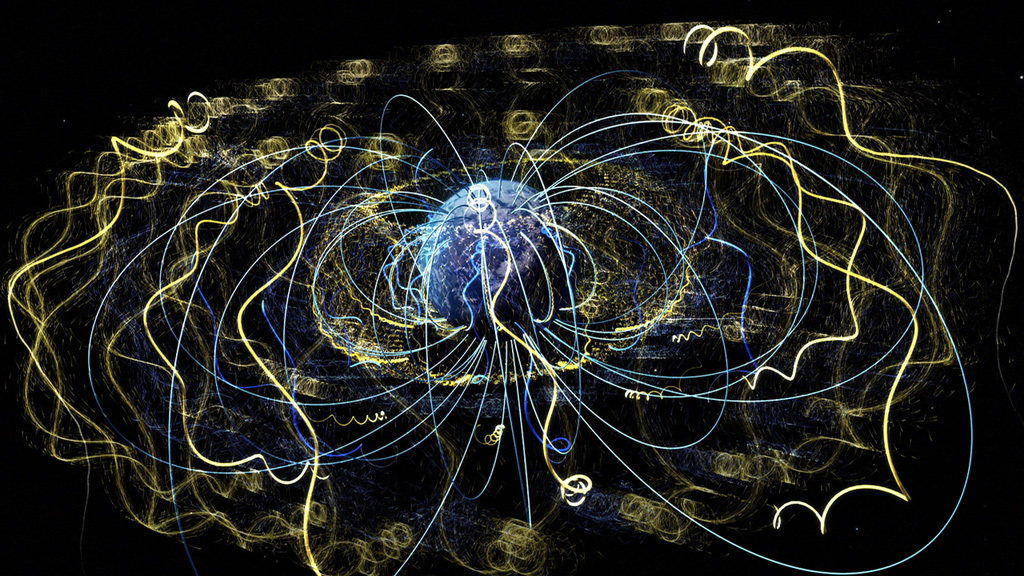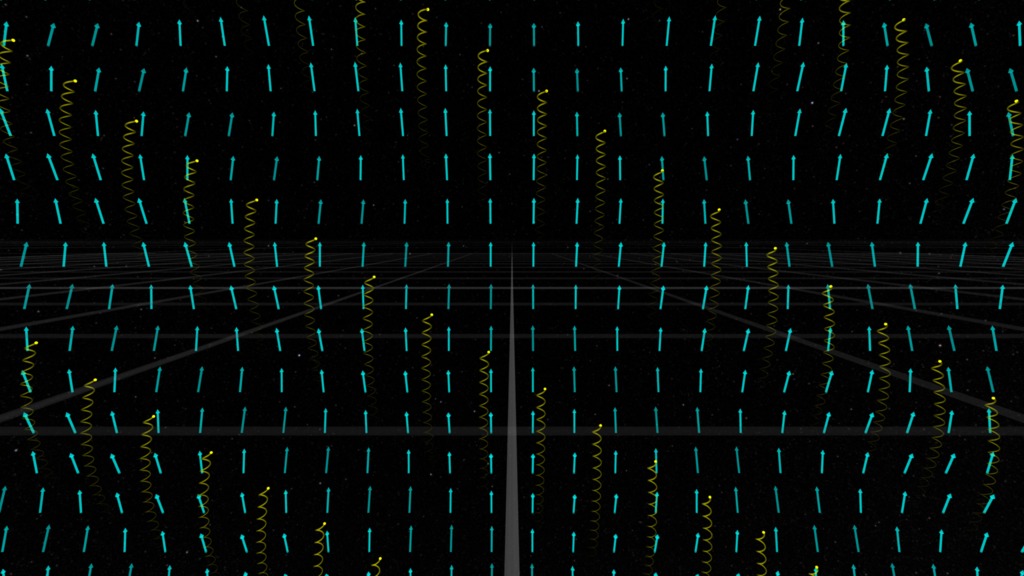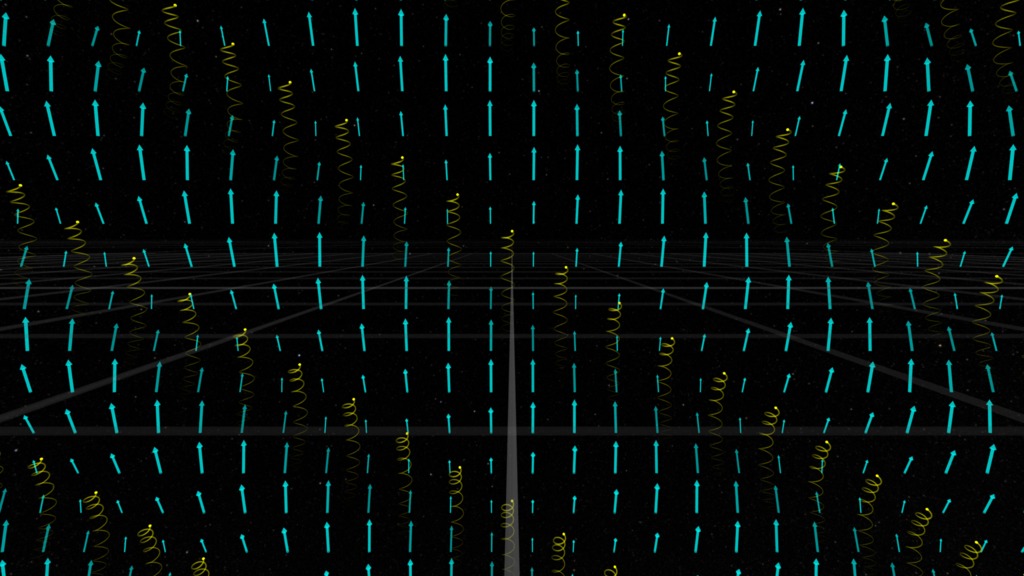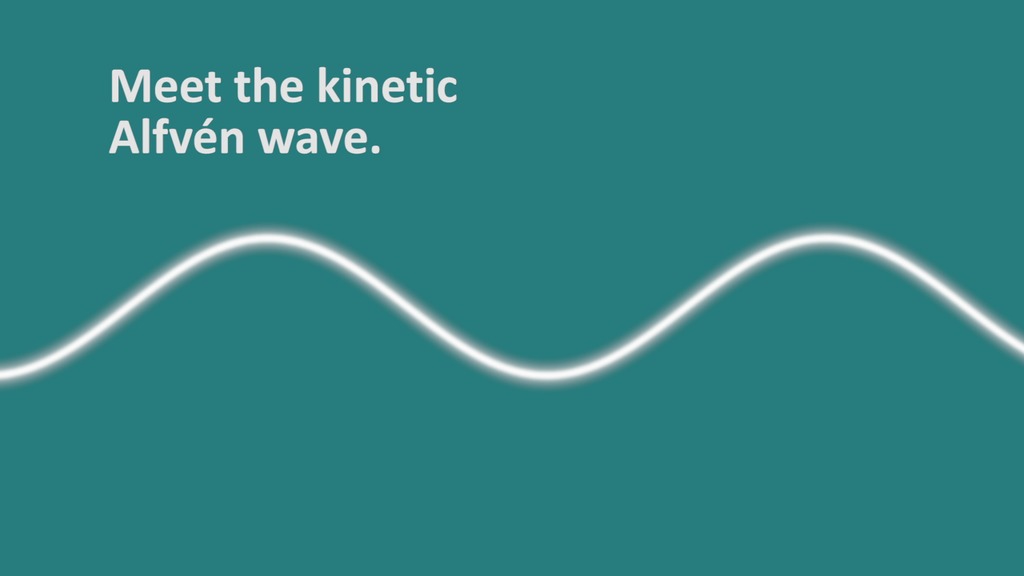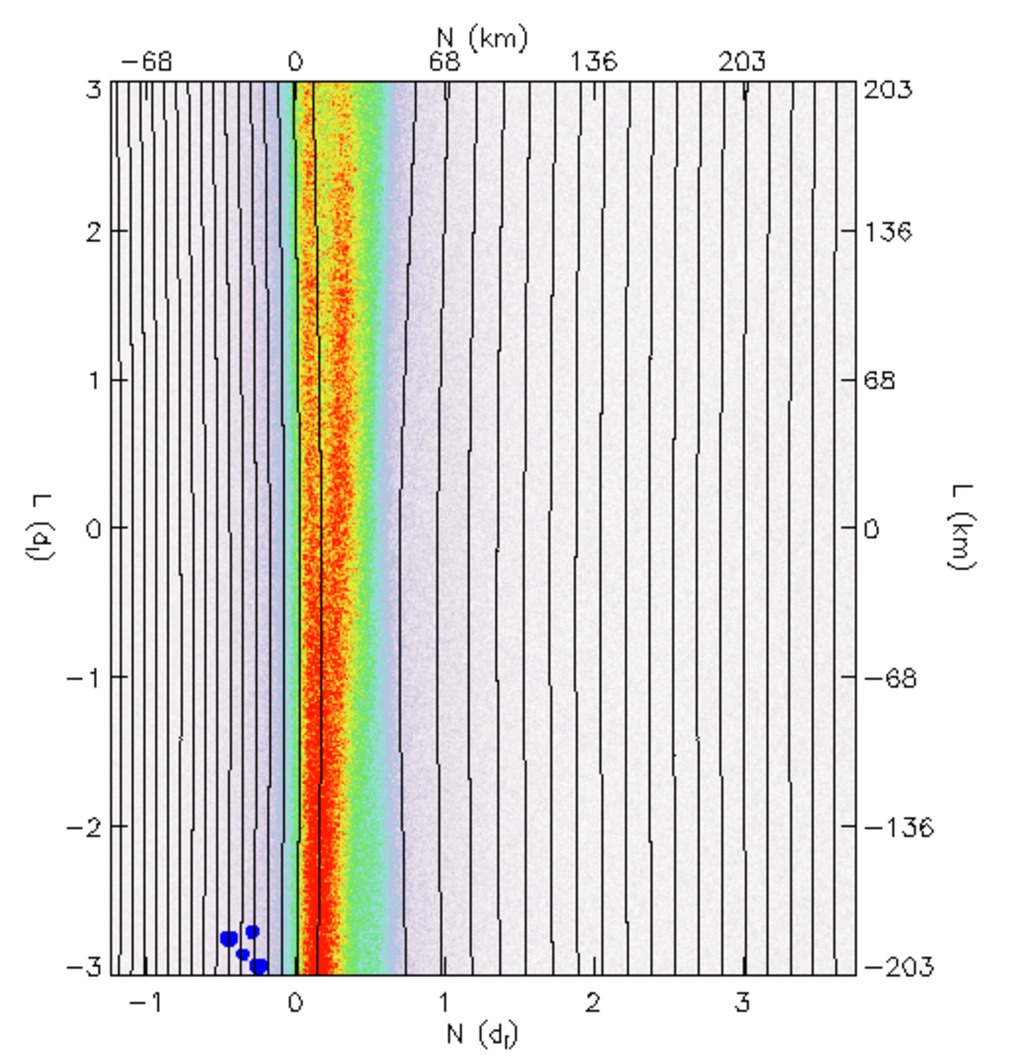How Plasma Transports Energy

For the first time, NASA scientists see how energy is transported in a plasma.
Observational proof of a 50-year-old theory has reshaped the basic understanding of a type of wave in space known as a kinetic Alfvén wave. Kinetic Alfvén waves have long been suspected to transport energy in plasmas, a fundamental state of matter composed of charged particles that exists throughout the universe. For the first time, scientists working with NASA’s Magnetospheric Multiscale (MMS) mission have been able to directly examine the microphysics of kinetic Alfvén waves in the Earth’s magnetosphere. As these waves move through a plasma, electrons traveling at the right speed get captured in weak spots of the wave’s magnetic field. Other electrons in the plasma traveling faster or slower than the wave end up passing energy back and forth as they try to keep up with it. This is similar to how a car’s cruise control works: If the car is going faster than the set limit, the car will lose energy to slow down and if the car is going slower than the limit, it will gain energy to speed up. By understanding the fundamental process that transports energy through a plasma, NASA can improve nuclear fusion technology and better understand how the solar wind - the constant flow of solar particles that bathes the entire solar system - is heated to extreme temperatures. Watch the video to learn more.
Explore how NASA’s MMS mission observed kinetic Alfvén waves down to the scale of particle movement.
Electrons traveling at different speeds become trapped in the weak spots of a kinetic Alfvén wave’s magnetic field.

Some particles become trapped in the weak spots of the a kinetic Alfvén wave’s magnetic field and ride along as it moves through space.

By learning how energy travels in a plasma, NASA scientists can better understand how the solar wind is heated to extreme temperatures.

The Magnetospheric Multiscale mission (MMS) spacecraft fly in a 3-D pyramid formation.
For More Information
See NASA.gov
Credits
Please give credit for this item to:
NASA's Scientific Visualization Studio
-
Animators
- Tom Bridgman (Global Science and Technology, Inc.)
- Brian Monroe (USRA)
-
Producer
- Genna Duberstein (USRA)
-
Scientist
- Daniel J. Gershman (University of Maryland College Park)
-
Writers
- Mara Johnson-Groh (Wyle Information Systems)
- Jordan Rice (Intern)
Release date
This page was originally published on Monday, April 2, 2018.
This page was last updated on Wednesday, May 3, 2023 at 1:46 PM EDT.
